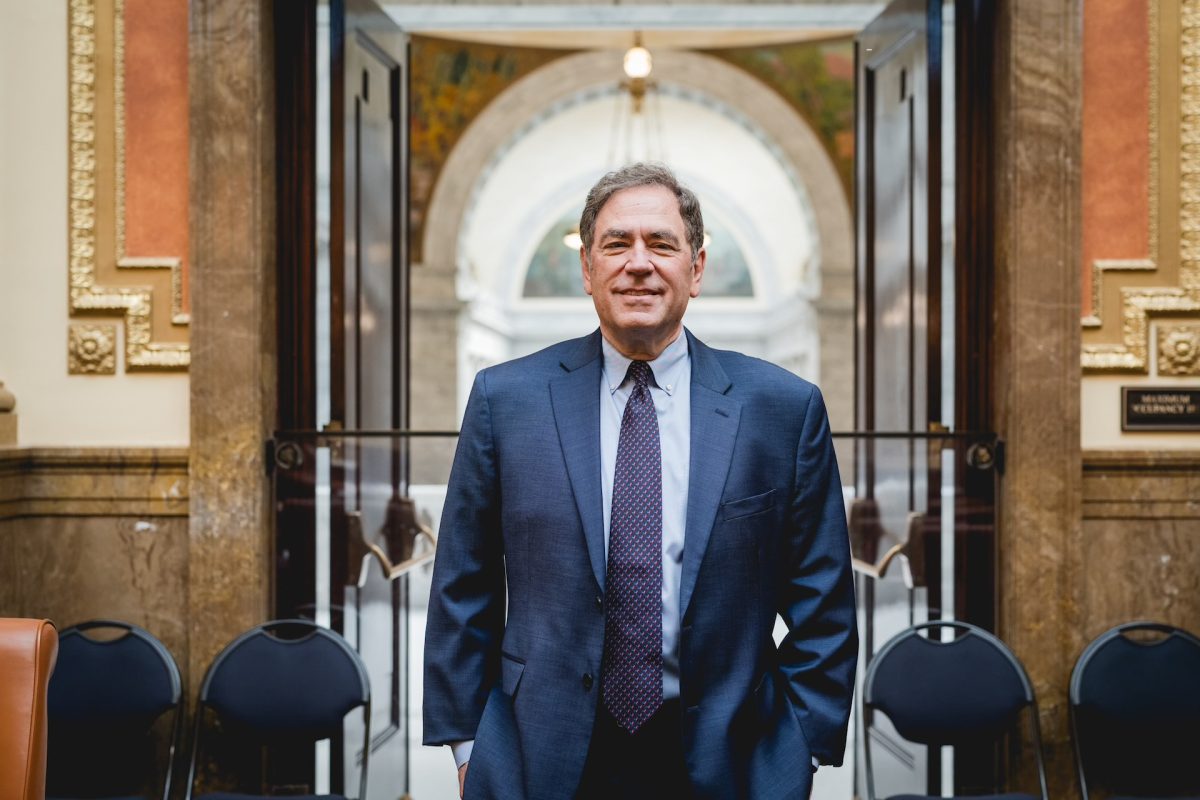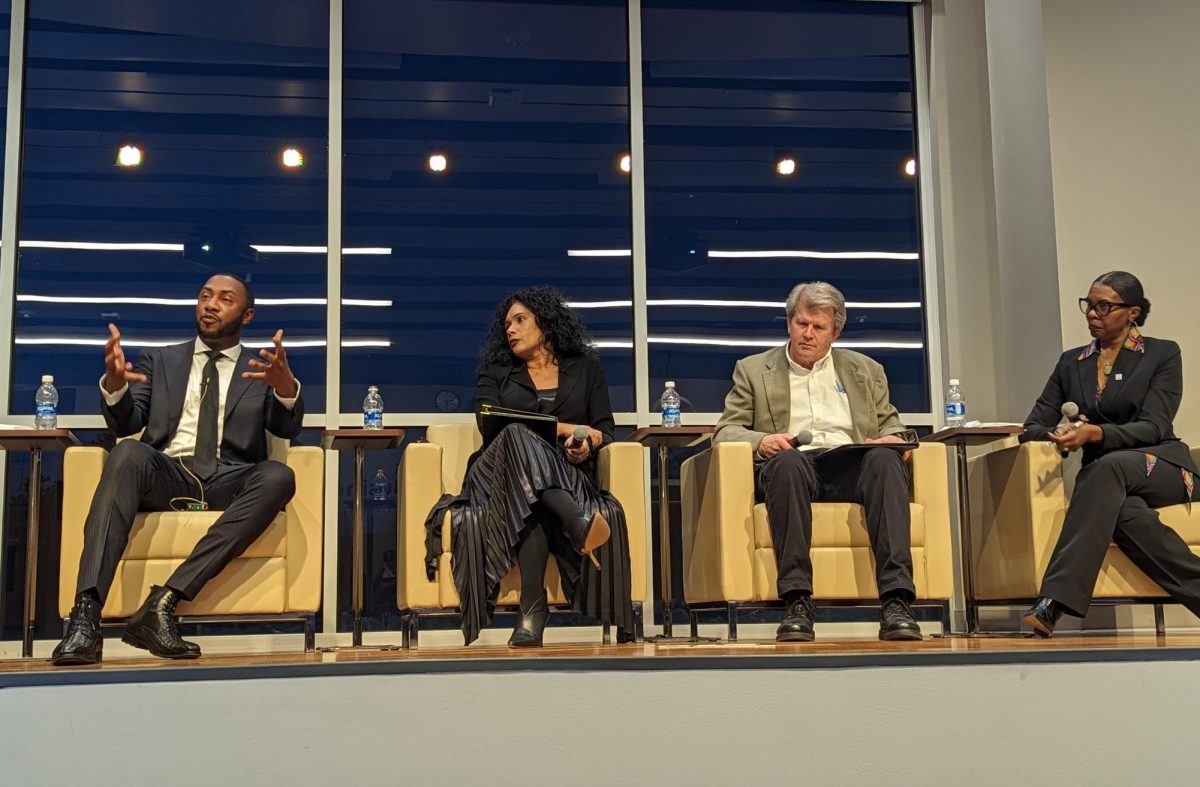With a rapidly changing society, university presidents are predicting changes in the future of higher education, especially with regards to federal regulations, the use of technology and college affordability.
“We looked at what we can do today to help students in 10 years, 20 years and 30 years,” said U President Michael Young on Thursday at a Hinckley Institute of Politics forum about the changes and problems facing the future of higher education.
Young spoke with Cecil Samuelson, president of Brigham Young University, to address the funding higher education institutions receive from the federal government.
“As (the federal government) gives more money, it feels more ownership,” Young said. “Higher education is dynamic because it isn’t regulated. The more it becomes regulated, it becomes more like public education.”
As the flow of federal dollars into universities increases, the accountability and reporting requirements to the federal government also increase. Universities now work to train students for the workforce and have increased the number of remedial-level classes offered to students. Because the reporting requirements have increased, Samuelson said universities are working on various ways to make their institutions better.
Even the roles of the students have changed, the presidents said.
“Students are very different now because they use the Internet,” Young said. “How technology has changed the students and professors is a very important issue.”
Before the accessibility of the Internet, students would acquire the information needed for classes by researching books in a library and accept that information as true. Now, because of the Internet, the way students acquire and process information has dramatically changed. A student can now find information from one source and validate it through multiple other sites and resources.
“I believe that technology, instead of making teachers obsolete, it has made them more important,” Samuelson said. “It changes the nature of student-teacher relations.”
Although the traditional relationship between students and teachers had been clearly defined in the classroom, advances in technology have changed how they are able to interact. Before, the accessibility of teachers was restricted to office hours, but now students are able to e-mail and text teachers about questions they might have about a lecture or assignment.
Another main concern about the future of education is its affordability. Given pressure on state budget, universities have seen an increase in tuition rates that is higher than usual. Young said universities could keep tuition low by hollowing out the educational system, for example, by reducing programs and costs. However, the quality of the education would suffer and students would seek out other, more qualified, institutions.
“Education ought not to be viewed as an expense, but rather as an investment,” Samuelson said.
Members of the audience voiced concerns about the ability of lower- and middle-income students to pay for school. Young said higher education has allowed those born in and those who have come to America to rise to a new level of proficiency. However, he said if something is not done to help those who cannot afford to pay for schooling, the nation will become economically and socially stratified. Because of the current times, Samuelson suggested that dropping out of high school or college is no longer an option.
“I’ve talked to my children about where to go to college,” said Carolyn Sterrett, who graduated with a business degree several years ago but has now returned to school. Sterrett said that college is no longer just an option, but a necessary step in the education process.
“I hope I will be able to help them pay for it,” she said.
 Tyler Cobb
Tyler CobbU President Michael Young and BYU president Cecil Samuelson shared their thoughts about the future of higher education during a forum Thursday morning.















